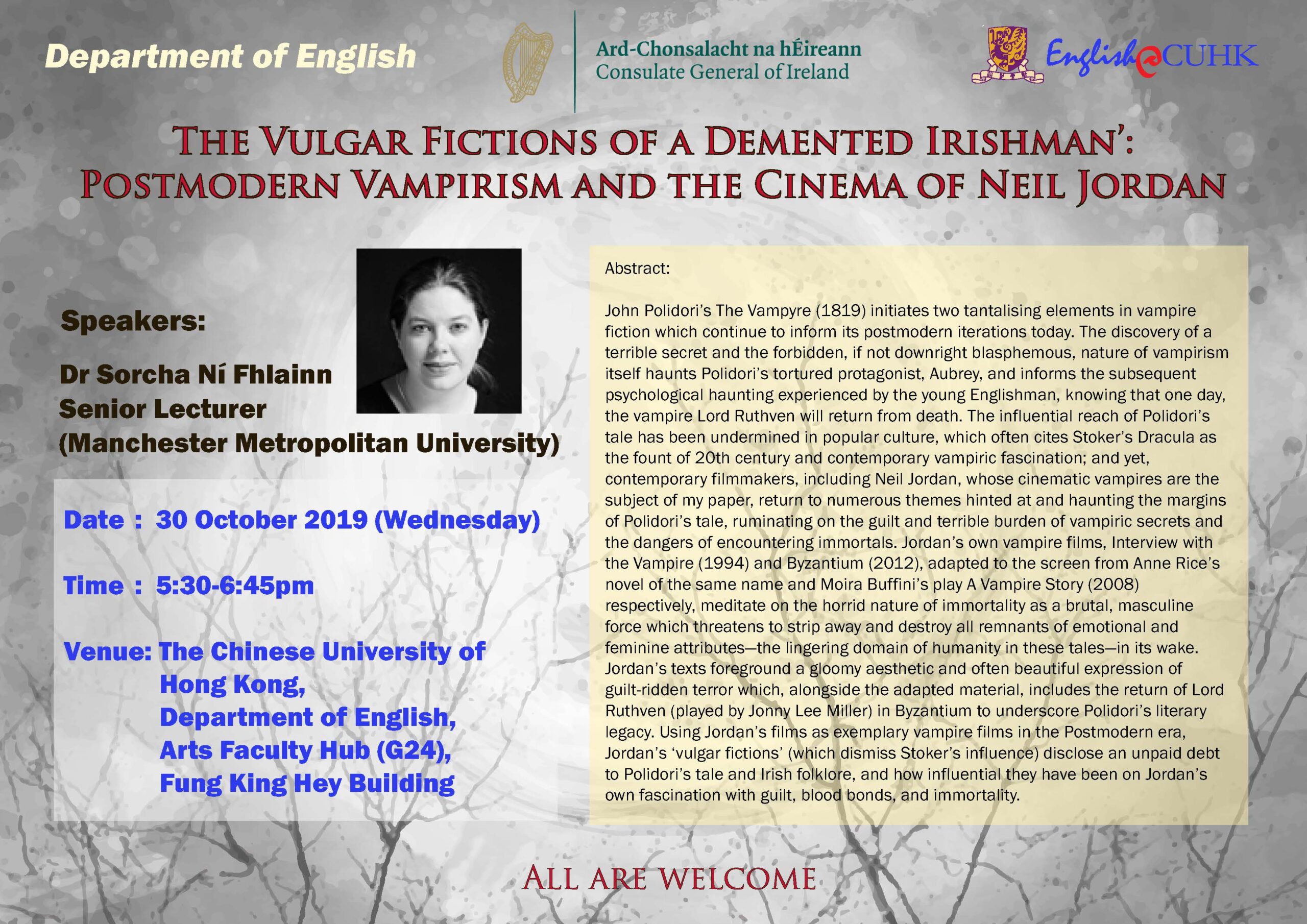The Vulgar Fictions of a Demented Irishman’: Postmodern Vampirism and the Cinema of Neil Jordan
Dr Sorcha Ní Fhlainn
Senior Lecturer
(Manchester Metropolitan University)
Abstract:
John Polidori’s The Vampyre (1819) initiates two tantalising elements in vampire fiction which continue to inform its postmodern iterations today. The discovery of a terrible secret and the forbidden, if not downright blasphemous, nature of vampirism itself haunts Polidori’s tortured protagonist, Aubrey, and informs the subsequent psychological haunting experienced by the young Englishman, knowing that one day, the vampire Lord Ruthven will return from death. The influential reach of Polidori’s tale has been undermined in popular culture, which often cites Stoker’s Dracula as the fount of 20th century and contemporary vampiric fascination; and yet, contemporary filmmakers, including Neil Jordan, whose cinematic vampires are the subject of my paper, return to numerous themes hinted at and haunting the margins of Polidori’s tale, ruminating on the guilt and terrible burden of vampiric secrets and the dangers of encountering immortals. Jordan’s own vampire films, Interview with the Vampire (1994) and Byzantium (2012), adapted to the screen from Anne Rice’s novel of the same name and Moira Buffini’s play A Vampire Story (2008) respectively, meditate on the horrid nature of immortality as a brutal, masculine force which threatens to strip away and destroy all remnants of emotional and feminine attributes—the lingering domain of humanity in these tales—in its wake. Jordan’s texts foreground a gloomy aesthetic and often beautiful expression of guilt-ridden terror which, alongside the adapted material, includes the return of Lord Ruthven (played by Jonny Lee Miller) in Byzantium to underscore Polidori’s literary legacy. Using Jordan’s films as exemplary vampire films in the Postmodern era, Jordan’s ‘vulgar fictions’ (which dismiss Stoker’s influence) disclose an unpaid debt to Polidori’s tale and Irish folklore, and how influential they have been on Jordan’s own fascination with guilt, blood bonds, and immortality.







